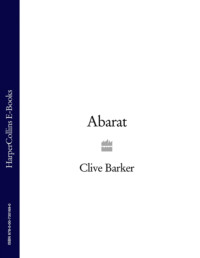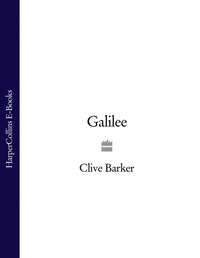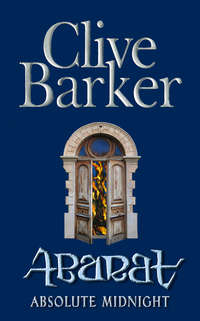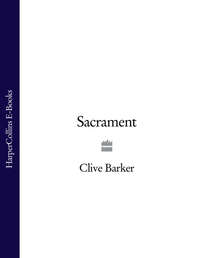
Полная версия
The Hellbound Heart
Julia looked after the unpacking, while Rory organized the unloading of the van, with Lewton and Mad Bob providing the extra muscle. It took four round trips to transfer the bulk of the stuff from Alexandra Road, and at the end of the day there was still a good deal of bric-a-brac left behind, to be collected at a later point.
About two in the afternoon, Kirsty turned up on the doorstep.
‘Came to see if I could give you a hand,’ she said, with a tone of vague apology in her voice.
‘Well, you’d better come in,’ Julia said. She went back into the front room, which was a battlefield in which only chaos was winning, and quietly cursed Rory. Inviting the lost soul round to offer her services was his doing, no doubt of it. She would be more of a hindrance than a help; her dreamy, perpetually defeated manner set Julia’s teeth on edge.
‘What can I do?’ Kirsty asked. ‘Rory said – ‘
‘Yes,’ said Julia. ‘I’m sure he did.’
‘Where is he? Rory, I mean.’
‘Gone back for another van-load, to add to the misery.’
‘Oh.’
Julia softened her expression. ‘You know it’s very sweet of you,’ she said, ‘to come round like this, but I don’t think there’s much you can do just at the moment.’
Kirsty flushed slightly. Dreamy she was; but not stupid.
‘I see,’ she said. ‘Are you sure? Can’t…I mean, maybe I could make a cup of coffee for you?’
‘Coffee,’ said Julia. The thought of it made her realize just how parched her throat had become. ‘Yes,’ she conceded. ‘That’s not a bad idea.’
The coffee-making was not without its minor traumas. No task Kirsty undertook was ever entirely simple. She stood in the kitchen, boiling water in a pan it had taken a quarter of an hour to find, thinking that maybe she shouldn’t have come after all. Julia always looked at her so strangely, as if faintly baffled by the fact she hadn’t been smothered at birth. No matter. Rory had asked her to come, hadn’t he? And that was invitation enough. She would not have turned down the chance of his smile for a hundred Julias.
The van arrived twenty-five minutes later; minutes in which the women had twice attempted, and twice failed, to get a conversation simmering. They had little in common: Julia the sweet, the beautiful, the winner of glances and kisses, and Kirsty the girl with the pale handshake, whose eyes were only ever as bright as Julia’s before or after tears. She had long ago decided that life was unfair. But why, when she’d accepted that bitter truth, did circumstance insist on rubbing her face in it?
She surreptitiously watched Julia as she worked, and it seemed to Kirsty that the woman was incapable of ugliness. Every gesture – a stray hair brushed from the eyes with the back of the hand, dust blown from a favourite cup – all were infused with such effortless grace. Seeing it, she understood Rory’s dog-like adulation; and understanding it, despaired afresh.
He came in, at last, squinting and sweaty. The afternoon sun was fierce. He grinned at her, parading the ragged line of his front teeth that she had first found so irresistible.
‘I’m glad you could come,’ he said.
‘Happy to help –’ she replied, but he had already looked away: at Julia.
‘How’s it going?’
‘I’m losing my mind,’ she told him.
‘Well now you can rest from your labours,’ he said. ‘We brought the bed this trip.’ He gave her a conspiratorial wink, but she didn’t respond.
‘Can I help with unloading?’ Kirsty offered.
‘Lewton and M.B. are doing it,’ came Rory’s reply.
‘Oh.’
‘But I’d give an arm and a leg for a cup of tea.’
‘We haven’t found the tea,’ Julia told him.
‘Oh. Maybe a coffee, then?’
‘Right,’ said Kirsty. ‘And for the other two?’
‘They’d kill for a cup.’
Kirsty went back to the kitchen, filled the small pan to near brimming, and set it back on the stove. From the hallway she heard Rory supervising the next unloading.
It was the bed; the bridal bed. Though she tried very hard to keep the thought of his embracing Julia out of her mind, she could not. As she stared into the water, and it simmered and steamed and finally boiled, the same painful images of their pleasure came back and back.
3
While the trio were away, gathering the fourth and final load of the day, Julia lost her temper with the unpacking. It was a disaster, she said; everything had been parcelled up and put into the tea chests in the wrong order. She was having to disinter perfectly useless items to get access to the bare necessities.
Kirsty kept her silence, and her place in the kitchen, washing the soiled cups.
Cursing louder, Julia left the chaos and went out for a cigarette on the front step. She leaned against the open door, and breathed the pollen-gilded air. Already, though it was only the 21st of August, the afternoon was tinged with a smoky scent that heralded autumn.
She had lost track of how fast the day had gone, for as she stood there a bell began to ring for Evensong: the run of chimes rising and falling in lazy waves. The sound was reassuring. It made her think of her childhood, though not – that she could remember – of any particular day or place. Simply of being young; of mystery.
It was four years since she’d last stepped into a church: the day of her marriage to Rory, in fact. The thought of that day – or rather of the promise it had failed to fulfil – soured the moment. She left the step, the chimes in full flight, and turned back into the house. After the touch of the sun on her upturned face, the interior seemed gloomy. Suddenly she was tired to the point of tears.
They would have to assemble the bed before they could put their heads down to sleep tonight, and they had yet to decide which room they would use as the master bedroom. She would do that now, she elected, and so avoid having to return to the front room, and to ever-mournful Kirsty.
The bell was still pealing when she opened the door of the front room on the second floor. It was the largest of the three upper rooms – a natural choice – but the sun had not got in today (or any other day this summer) because the blinds were drawn across the window. The room was consequently chillier than anywhere else in the house; the air stagnant. She crossed the stained floorboards to the window, intending to remove the blind.
At the sill, a strange thing. The blind had been securely nailed to the window-frame, effectively cutting out the least intrusion of life from the sunlit street beyond. She tried to pull the material free, but failed. The workman, whoever he’d been, had done a thorough job.
No matter, she’d have Rory take a claw-hammer to the nails when he got back. She turned from the window, and as she did so she was suddenly and forcibly aware that the bell was still summoning the faithful. Were they not coming tonight? Was the hook not sufficiently baited with promises of paradise? The thought was only half alive; it withered in moments. But the bell rolled on, reverberating around the room. Her limbs, already aching with fatigue, seemed dragged down further by each peal. Her head throbbed intolerably.
The room was hateful, she’d decided; it was stale, and its benighted walls clammy. Despite its size, she would not let Rory persuade her into using it as the master bedroom. Let it rot.
She started towards the door, but as she came within a yard of it, the corners of the room seemed to creak, and the door slammed. Her nerves jangled. It was all she could do to prevent herself from sobbing.
Instead she simply said: ‘Go to hell,’ and snatched at the handle. It turned easily (why should it not?; yet she was relieved) and the door swung open. From the hall below, a splash of warmth and ochre light.
She closed the door behind her and, with a queer satisfaction the root of which she couldn’t or wouldn’t fathom, turned the key in the lock.
As she did so, the bell stopped.
4
‘But it’s the biggest of the rooms…’
‘I don’t like it, Rory. It’s damp. We can use the back room.’
‘If we can get the bloody bed through the door.’
‘Of course we can. You know we can.’
‘Seems a waste of a good room,’ he protested, knowing full well that this was a fait accompli.
‘Mother knows best,’ she told him, and smiled at him with eyes whose lustre was far from maternal.
THREE
The seasons long for each other, like men and women, in order that they may be cured of their excesses.
Spring, if it lingers more than a week beyond its span, starts to hunger for summer to end the days of perpetual promise. Summer in its turn soon begins to sweat for something to quench its heat, and the mellowest of autumns will tire of gentility at last, and ache for a quick sharp frost to kill its fruitfulness.
Even winter – the hardest season, the most implacable – dreams, as February creeps on, of the flame that will presently melt it away. Everything tires with time, and starts to seek some opposition, to save it from itself.
So August gave way to September and there were few complaints.
2
With work, the house on Lodovico Street began to look more hospitable. There were even visits from neighbours, who – after sizing up the couple – spoke freely of how happy they were to have number fifty-five occupied again. Only one of them made any mention of Frank, referring in passing to the odd fellow who’d lived in the house for a few weeks the previous summer. There was a moment of embarrassment when Rory revealed the tenant to have been his brother, but it was soon glossed over by Julia, whose power to charm knew no bounds.
Rory had seldom made mention of Frank during the years of his marriage to Julia, though he and his brother were only eighteen months apart in age, and as children had been inseparable. This Julia had learned on an occasion of drunken reminiscing – a month or two before the wedding – when Rory had spoken at length about Frank. It had been melancholy talk. The brothers’ paths had diverged considerably once they’d passed through adolescence, and Rory regretted it. Regretted still more the pain Frank’s wild life-style had brought to their parents. It seemed that when Frank appeared, once in a blue moon, from whichever corner of the globe he was presently laying waste, he only brought grief. His tales of adventures in the shallows of criminality, his talk of whores and petty theft, all appalled the family. But there had been worse, or so Rory had said. In his wilder moments Frank had talked of life lived in delirium; of an appetite for experience that conceded no moral imperative.
Was it the tone of Rory’s telling, a mixture of revulsion and envy, that had so piqued Julia’s curiosity? Whatever the reason, she had been quickly seized by an unquenchable curiosity concerning this madman.
Then, barely a fortnight before the wedding, the black sheep had appeared in the flesh. Things had gone well for him of late. He was wearing gold rings on his fingers, and his skin was tight and tanned. There was little outward sign of the monster Rory had described. Brother Frank was smooth as a polished stone. She had succumbed to his charm within hours.
A strange time ensued. As the days crept towards the date of the wedding she found herself thinking less and less of her husband to be, and more and more of his brother. They were not wholly dissimilar; a certain lilt in their voices, and their easy manner, marked them as siblings. But to Rory’s qualities Frank brought something his brother would never have: a beautiful desperation.
Perhaps what had happened next had been inevitable; and no matter how hard she’d fought her instincts, she would only have postponed the consummation of their feelings for each other. At least that was how she tried to excuse herself later. But when all the self-recrimination was done with she still treasured the memory of their first – and last – encounter.
Kirsty had been at the house, hadn’t she, on some matrimonial business, when Frank had arrived. But by that telepathy which comes with desire (and fades with it) Julia had known that today was the day. She’d left Kirsty to her list-making or suchlike, and taken Frank upstairs on the pretext of showing him the wedding dress. That was how she remembered it; that he’d asked to see the dress, and she’d put the veil on, laughing to think of herself in white, and then he’d been at her shoulder, lifting the veil, and she’d laughed on, laughed and laughed, as though to test the strength of his purpose. He had not been cooled by her mirth however, nor had he wasted time with the niceties of a seduction. The smooth exterior gave way to cruder stuff almost immediately. Their coupling had had, in every regard but the matter of her acquiescence, all the aggression and the joylessness of rape.
Memory sweetened events, of course, and in the four years (and five months) since that afternoon, she’d replayed the scene often. Now, in remembering it, the bruises were trophies of their passion; her tears proof positive of her feelings for him.
The day following, he’d disappeared. Flitted off to Bangkok or Easter Island, some place where he had no debts to answer. She’d mourned him; couldn’t help it. Nor had her mourning gone unnoticed. Though it was never explicitly discussed, she had often wondered if the subsequent deterioration of her relationship with Rory had not started there: with her thinking of Frank as she made love to his brother.
And now? Now, despite the change of domestic interiors, and the chance of a fresh start together, it seemed that events conspired to remind her again of Frank.
It wasn’t just the gossip of the neighbours that brought him to mind. One day, when she was alone in the house, and unpacking various personal belongings, she came across several wallets of Rory’s photographs. Many were relatively recent pictures of the two of them together in Athens and Malta. But buried amongst the transparent smiles were some pictures she couldn’t remember ever having seen before (had Rory kept them from her?); family portraits that went back decades. A photograph of his parents on their wedding day; the black and white image eroded over the years to a series of greys. Pictures of christenings, in which proud godparents cradled babies smothered in the family lace.
And then, photographs of the brothers together; as toddlers, with wide eyes; as surly schoolchildren, snapped at gymnastic displays and in school pageants. Then, as the shyness of acne-ridden adolescence took over, the number of pictures dwindled – until the frogs emerged, as princes, the other side of puberty.
Seeing Frank in brilliant colour, clowning for the camera, she felt herself blushing. He had been an exhibitionist youth, predictably enough; always dressed à la mode. Rory, by comparison, looked dowdy. It seemed to her that the brothers’ future lives were sketched in these early portraits. Frank the smiling, seductive chameleon; Rory the solid citizen.
She had packed the pictures away at last, and found, when she stood up, that with the blushes had come tears. Not of regret. She had no use for that. It was fury which made her eyes sting. Somehow, between one breath and the next, she’d lost herself.
She knew too, with perfect certainty, when her grip had first faltered. Lying on a bed of wedding lace, while Frank beset her neck with kisses.
3
Once in a while she went up to the room with the sealed blinds.
So far, they’d done little decorating work on the upper floors, preferring to first organize the areas in public gaze. The room had therefore remained untouched. Unentered, indeed, except for these few visits of hers.
She wasn’t sure why she went up; nor how to account for the odd assortment of feelings that beset her while there. But there was something about the dark interior which gave her comfort: it was a womb of sorts; a dead woman’s womb. Sometimes, when Rory was at work, she simply took herself up the stairs and sat in the stillness thinking of nothing; or at least nothing she could put words to.
These sojourns made her feel oddly guilty, and she tried to stay away from the room when Rory was around. But it wasn’t always possible. Sometimes her feet took her there without instructions so to do.
It happened thus that Saturday, the day of the blood.
She had been watching Rory at work on the kitchen door, chiselling several layers of paint around the hinges, when she seemed to hear the room call. Satisfied that he was thoroughly engrossed in his chores, she went upstairs.
It was cooler than usual, and she was glad of it.
She put her hand to the wall, and then transferred her chilled palm to her forehead.
‘No use,’ she murmured to herself, picturing the man at work downstairs. She didn’t love him; no more than he, beneath his infatuation with her face, loved her. He chiselled in a world of his own; she suffered here, far removed from him.
A gust of wind caught the back door below. She heard it slam.
Downstairs, the sound made Rory lose his concentration. The chisel jumped its groove and sliced deeply into the thumb of his left hand. He shouted, as a gush of colour came. The chisel hit the floor.
‘Hell and damnation!’
She heard, but did nothing. Too late, she surfaced through a stupor of melancholy to realize that he was coming upstairs. Fumbling for the key, and an excuse to justify her presence in the room, she stood up, but he was already at the door, crossing the threshold, rushing towards her, his right hand clamped ineptly around his left. Blood was coming in abundance. It welled up between his fingers and dribbled down his arm, dripping from his elbow, adding stain to stain on the bare boards.
‘What have you done?’ she asked him.
‘What does it look like?’ he said through gritted teeth. ‘Cut myself.’
His face and neck had gone the colour of window-putty. She’d seen him like this before, he had on occasion passed out at the sight of his own blood.
‘Do something,’ he said queasily.
‘Is it deep?’
‘I don’t know!’ he yelled at her. ‘I don’t want to look.’
He was ridiculous, she thought; but this wasn’t the time to give vent to the contempt she felt. Instead she took his bloody hand in hers and, while he looked away, prised the palm from the cut. It was sizeable, and still bleeding profusely. Deep blood; dark blood.
‘I think we’d better take you off to the hospital,’ she told him.
‘Can you cover it up?’ he asked, his voice devoid of anger now.
‘Sure. I’ll get a clean binding. Come on – ’
‘No,’ he said, shaking his ashen face. ‘If I take a step, I think I’ll pass out.’
‘Stay here then,’ she soothed him. ‘You’ll be fine.’
Finding no bandages in the bathroom cabinet the equal of the staunching, she fetched a few clean handkerchiefs from his drawer and went back into the room. He was leaning against the wall now, his skin glossy with sweat. He had padded in the blood he’d shed; she could taste the tang of it in the air.
Still quietly reassuring him that he wouldn’t die of a two-inch cut, she wound a handkerchief around his hand, bound it on with a second, then escorted him, trembling like a leaf, down the stairs (one by one, like a child) and out to the car.
At the hospital they waited an hour in a queue of the walking wounded before he was finally seen and stitched up. It was difficult for her to know in retrospect what was more comical about the episode: his weakness, or the extravagance of his subsequent gratitude. She told him, when he became too fulsome, that she didn’t want thanks from him, and it was true.
She wanted nothing that he could offer her, except perhaps his absence.
4
‘Did you clean up the floor in the damp room?’ she asked him the following day. They’d called it the damp room since that first Sunday, though there was not a sign of rot from ceiling to skirting board.
Rory looked up from his magazine. Grey moons hung beneath his eyes. He hadn’t slept well, so he’d said. A cut finger, and he had nightmares of mortality. She, on the other hand, had slept like a babe.
‘What did you say?’ he asked her.
‘The floor,’ she said again. ‘There was blood on the floor. You cleaned it up.’
He shook his head. ‘No,’ he said simply, and returned to the magazine.
‘Well I didn’t,’ she said.
He offered her an indulgent smile. ‘You’re such a perfect hausfrau,’ he said. ‘You don’t even know when you’re doing it.’
The subject was closed there. He was content, apparently, to believe that she was quietly losing her sanity.
She, on the other hand, had the strangest sense that she was about to find it again.
FOUR
Kirsty hated parties. The smiles to be pasted on over the panic; the glances to be interpreted; and worst, the conversation. She had nothing to say of the least interest to the world, of this she had long been convinced. She’d watched too many eyes glaze over to believe otherwise; seen every device known to man for wheedling oneself out of the company of the dull, from: ‘Will you excuse me, I believe I see my accountant’, to passing out dead drunk at her feet.
But Rory had insisted she come to the house-warming. Just a few close friends, he’d promised. She’d said yes, knowing all too well what scenario would ensue from her refusal. Moping at home in a stew of self-recrimination, cursing her cowardice and thinking of Rory’s sweet face.
The gathering wasn’t such a torment, as it turned out. There were only nine guests in toto, all of whom she knew vaguely, which made it easier. They didn’t expect her to illuminate the room; only to nod and laugh where appropriate. And Rory – his hand still bound up – was at his most winning, full of guileless bonhomie. She even wondered if Neville – one of Rory’s work colleagues – wasn’t making eyes at her behind his spectacles, a suspicion which was confirmed in the middle of the evening when he manoeuvred himself to her side and enquired whether she had any interest in cat-breeding. She told him she hadn’t, but was always interested in new experiences. He seemed delighted, and on this fragile pretext proceeded to ply her with liqueurs for the rest of the night. By eleven-thirty she was a whoozy but happy wreck, prompted by the most casual remark to ever more painful fits of giggling.
A little after midnight, Julia declared that she was tired, and wanted to go to bed. The statement was taken as a general cue for dispersal, but Rory would have none of it. He was up and re-filling glasses before anyone had a chance to protest. Kirsty was certain she caught a look of displeasure cross Julia’s face, then it passed, and the brow was unsullied once again. She said her goodnights, was complimented profusely on her skill with calf’s liver, and went to bed.
The flawlessly beautiful were flawlessly happy, weren’t they? To Kirsty this had always seemed self-evident. Tonight, however, the alcohol made her wonder if envy hadn’t blinded her. Perhaps to be flawless was another kind of sadness.
But her spinning head had an inept hold on such ruminations, and the next minute Rory was up, and telling a joke about a gorilla and a Jesuit which had her choking on her drink before he’d even got to the votive candles.
Upstairs, Julia heard a fresh bout of laughter. She was indeed tired, as she’d claimed, but it wasn’t the cooking that had exhausted her. It was the effort of suppressing her contempt for the damn fools who were gathered in the lounge below. She’d called them friends once, these halfwits, with their poor jokes and their poorer pretensions. She had played along with them for several hours; it was enough. Now she needed some cool place; some darkness.








